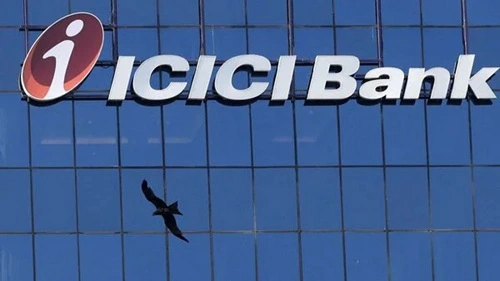ICICI Bank, one of India’s largest private sector banks, has a significant presence across various financial services, including retail and corporate banking, insurance, asset management, and investment banking. Founded in 1994, ICICI Bank has grown rapidly, establishing itself as a leader in India’s banking landscape with a robust digital infrastructure and a broad customer base. However, with the banking industry facing both challenges and opportunities due to economic changes and evolving customer expectations, ICICI Bank’s position is constantly adapting. This SWOT (Strengths, Weaknesses, Opportunities, Threats) analysis offers a comprehensive look at ICICI Bank’s current market position and future outlook.

Strengths
1. Strong Brand Reputation and Market Position:
ICICI Bank is one of India’s most trusted private sector banks, known for its wide range of financial products, solid customer service, and reliability. With a reputation built on over two decades of experience, ICICI Bank has become a household name in India. Its extensive presence across India, combined with strong brand loyalty, provides a significant advantage over newer competitors.
2. Extensive Digital and Technological Infrastructure:
ICICI Bank has been a pioneer in digital banking in India. The bank’s robust digital ecosystem includes internet banking, mobile banking, and platforms like iMobile and Pockets, which offer a wide array of services to enhance customer convenience. By leveraging technology, ICICI Bank has made banking services accessible to customers across urban and rural regions. This technological edge has allowed the bank to attract tech-savvy customers and maintain a competitive position in the digital age.
3. Comprehensive Product and Service Portfolio:
ICICI Bank offers an extensive range of products across retail and corporate banking, insurance (ICICI Lombard), asset management (ICICI Prudential), and investment banking. This diversified product portfolio allows the bank to cater to various customer needs, from personal loans and credit cards to wealth management and business financing. Additionally, its subsidiaries provide cross-selling opportunities, enhancing customer retention and increasing revenue streams.
4. Strong Risk Management and Credit Quality:
ICICI Bank has made significant strides in strengthening its risk management practices, focusing on prudent lending and improving asset quality. The bank has reduced its non-performing assets (NPAs) in recent years through improved risk assessment and recovery efforts, which has contributed to higher profitability and investor confidence. By managing credit risk effectively, ICICI Bank has enhanced its resilience to economic cycles and financial instability.
Weaknesses
1. Exposure to Corporate Loans and Associated Risks:
ICICI Bank’s corporate loan portfolio constitutes a substantial portion of its assets, making it vulnerable to risks associated with economic downturns and the financial health of corporate clients. During previous economic slowdowns, ICICI Bank faced challenges with rising NPAs, particularly in the corporate sector. Although the bank has reduced its exposure to risky sectors, corporate lending remains a vulnerability, especially if sectors like infrastructure or manufacturing experience slowdowns.
2. Dependence on Interest Income:
ICICI Bank derives a significant portion of its revenue from interest income, which is subject to fluctuations based on interest rate changes, competition, and economic conditions. This reliance can affect the bank’s profitability, especially when interest rates are low. While ICICI Bank has been diversifying into non-interest income segments, interest income remains a crucial component of its revenue, exposing it to regulatory and market rate risks.
3. Competition in the Digital Space:
While ICICI Bank has a strong digital presence, competition in the digital banking and fintech sectors is intensifying. New-age fintech companies and other private sector banks, such as HDFC Bank and Axis Bank, are investing heavily in digital transformation, providing customers with innovative services and user-friendly platforms. ICICI Bank needs to continually invest in technology to maintain its digital leadership and meet evolving customer expectations.
4. Regulatory Compliance and Governance Challenges:
ICICI Bank has faced regulatory and governance issues in the past, including inquiries into corporate governance practices. Such issues can impact the bank’s reputation and credibility. While the bank has worked to strengthen its governance framework, ensuring strict compliance with regulatory standards remains essential to avoid reputational damage and maintain stakeholder confidence.
Opportunities
1. Expansion of Digital Banking and Fintech Partnerships:
The Indian banking sector is undergoing a digital revolution, with increased adoption of digital banking services. ICICI Bank has an opportunity to expand its digital offerings by leveraging emerging technologies such as artificial intelligence, blockchain, and data analytics. Collaborating with fintech companies could also allow ICICI Bank to access new customer segments, streamline operations, and introduce innovative financial products.
2. Growth in Retail Banking and Credit Demand:
As disposable incomes rise and the middle class expands, demand for retail banking products, such as personal loans, mortgages, and credit cards, is growing in India. ICICI Bank is well-positioned to capitalize on this trend, particularly in Tier 2 and Tier 3 cities, where financial inclusion is improving. Expanding retail loan offerings and penetrating underserved markets could drive long-term growth for the bank.
3. Wealth Management and Investment Services:
With growing awareness of financial planning and investment opportunities among Indians, demand for wealth management and investment advisory services is on the rise. ICICI Bank’s wealth management division, along with its subsidiaries like ICICI Prudential and ICICI Securities, is well-positioned to capture this demand. By offering comprehensive financial planning services, ICICI Bank can attract high-net-worth individuals (HNIs) and affluent clients, enhancing fee-based income.
4. Expansion into Rural and Semi-Urban Markets:
The Indian government’s emphasis on financial inclusion presents an opportunity for ICICI Bank to expand in rural and semi-urban areas. With its existing digital infrastructure and initiatives to reach underserved regions, ICICI Bank can tap into new customer bases, particularly as more people gain access to formal banking. Offering tailored products and services for rural customers can drive growth and help the bank establish a deeper presence in these emerging markets.
Threats
1. Intense Competition from Public and Private Banks:
The Indian banking sector is highly competitive, with public sector banks (PSBs) and other private banks aggressively vying for market share. Competitors like HDFC Bank, Axis Bank, and State Bank of India (SBI) have strong customer bases and substantial resources, making competition intense. This rivalry pressures ICICI Bank to offer competitive interest rates, fees, and customer service, impacting its margins.
2. Regulatory Risks and Compliance Costs:
ICICI Bank operates in a highly regulated environment, with stringent rules set by the Reserve Bank of India (RBI) on lending, capital adequacy, and customer protection. Changes in regulatory policies, such as interest rate caps or limits on certain types of loans, can impact ICICI Bank’s business operations. Compliance costs also continue to rise as the bank adapts to evolving regulations, adding to its operational expenses.
3. Economic Slowdowns and Rising Inflation:
The banking sector is sensitive to economic fluctuations, and an economic slowdown can lead to reduced demand for loans and an increase in NPAs. Additionally, rising inflation can affect consumer purchasing power, leading to a decline in demand for banking products. Economic instability, whether global or domestic, could negatively impact ICICI Bank’s growth and profitability, particularly if the bank’s customers face financial difficulties.
4. Cybersecurity Threats and Data Privacy Risks:
As ICICI Bank enhances its digital presence, cybersecurity and data privacy risks grow. The bank’s extensive use of online and mobile banking platforms exposes it to potential cyberattacks, data breaches, and fraud. Ensuring robust cybersecurity protocols is essential to maintaining customer trust and protecting sensitive information. Any data breach or security incident could lead to reputational damage, financial losses, and regulatory penalties.
Future Outlook
The future outlook for ICICI Bank appears optimistic, driven by growth opportunities in digital banking, retail lending, and wealth management. The bank’s focus on digital transformation positions it well in an industry increasingly shaped by technology and customer convenience. By expanding its digital offerings and enhancing partnerships with fintech firms, ICICI Bank can attract younger, tech-savvy customers and maintain its competitive edge in digital banking.
ICICI Bank’s expansion into rural and semi-urban markets aligns well with the government’s push for financial inclusion. With its existing infrastructure and digital services, ICICI Bank can serve customers in Tier 2 and Tier 3 cities, which hold significant growth potential. The bank’s ability to develop tailored products for rural customers and small businesses will be crucial in capturing this emerging market.
However, achieving sustainable growth will require managing existing challenges. ICICI Bank must address its exposure to corporate loans and strengthen its risk management practices to mitigate potential NPAs, particularly in economic downturns. By diversifying into fee-based income streams, such as wealth management, the bank can reduce its dependence on interest income and enhance profitability.
ICICI Bank’s commitment to cybersecurity and regulatory compliance will also be critical as the bank expands its digital footprint. Maintaining robust cybersecurity protocols and ensuring compliance with evolving regulations will help safeguard customer trust and protect the bank from reputational risks.
In conclusion, ICICI Bank’s strong brand, diversified product portfolio, and digital capabilities provide a solid foundation for future growth. By addressing weaknesses and capitalizing on opportunities in digital banking, wealth management, and underserved markets, ICICI Bank can continue to strengthen its position in India’s competitive banking landscape. With a strategic focus on innovation, customer-centricity, and risk management, ICICI Bank is well-positioned to navigate challenges and leverage emerging trends in the financial services sector.

